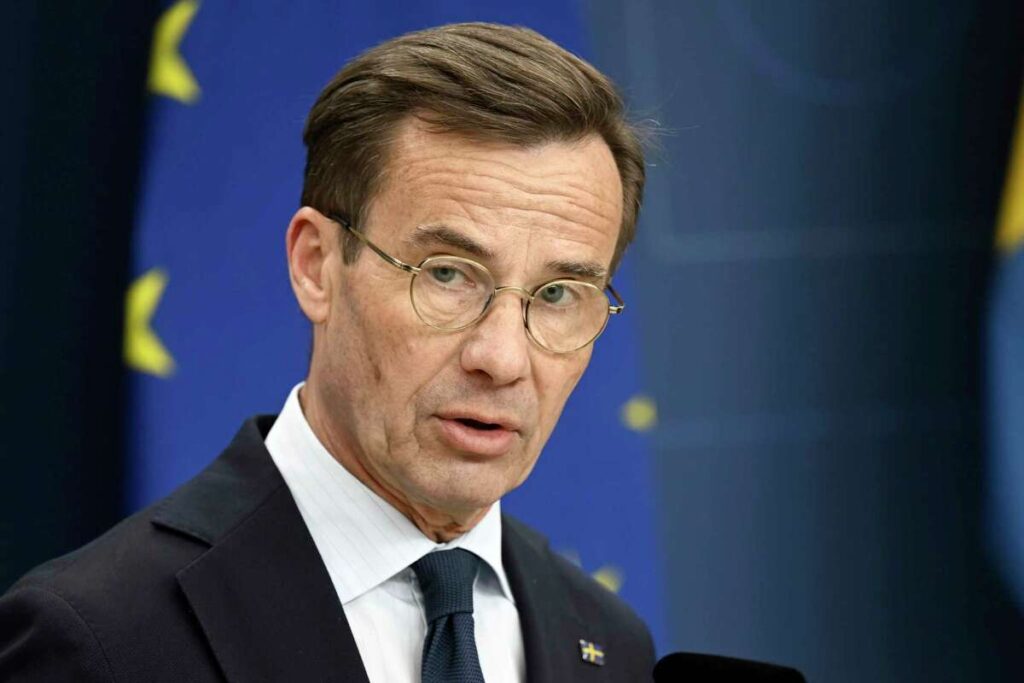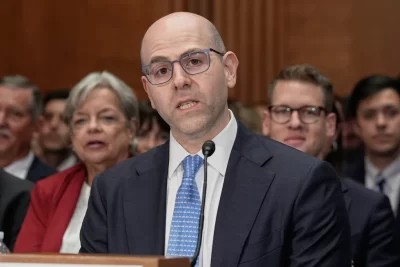
The killing of two Swedish citizens in an attack ahead of a soccer match in Brussels has shocked the Scandinavian country, although the government has been warning for months that Swedes were at greater risk since a recent string of public desecrations of the Quran holy book by a handful of anti-Islam activists.
Swedish Prime Minister Ulf Kristersson on Tuesday noted that the government and the security service in August had raised the terror alert to the second-highest level following threats against Sweden by Islamic extremists. “Now we know with chilling clarity that there were grounds for those concerns,” he said.
The desecrations, primarily by an Iraqi refugee living in Sweden, have sparked angry reactions in Muslim countries. In June, demonstrators in Iraq stormed the Swedish Embassy and the Iraqi government cut off diplomatic relations with Sweden.
The desecrations have raised questions -– including in Sweden -– about why such acts are allowed.
WHAT DO SWEDISH AUTHORITIES SAY?
“Not everything that is legal is appropriate,” Kristersson said Tuesday. “What you do in Sweden can have consequences elsewhere.”
In August, Sweden raised its terror alert to the second-highest level for the first time since 2016 following the Quran burnings and threats from militant groups.
In a statement Tuesday, the Swedish Security Service, known as SÄPO, said the situation was ”serious” and that it was “working closely with the Belgian authorities.”
Kristersson said he had been told by Belgium that the perpetrator “had stayed in Sweden but was not known to the Swedish police.”
The European Union’s passport-free zone allowed him to travel to Sweden.
“We have an openness in Europe, which is one of the important reasons why we need to keep an eye on the EU’s external border, because otherwise people can easily move between European countries,” Kristersson said.
DOES SWEDISH LAW ALLOW SUCH DESCRETATIONS?
In Sweden, there is no law specifically prohibiting the desecration of the Quran or other religious texts. The right to hold public demonstrations is protected by the Swedish Constitution. Police generally give permission based on whether they believe a public gathering can be held without major disruptions or risks to public safety.
Many in Sweden say criticizing religion, even in a manner that is considered offensive by believers, must be allowed and that Sweden should resist pressure to re-introduce blasphemy laws which were abandoned decades ago in the predominantly Lutheran but highly secularized nation.
HAVE THERE BEEN ATTACKS ON SWEDISH SOIL?
Sweden, once largely insulated from militant violence, has experienced attacks in recent years.
On April 7, 2017, Rakmat Akilov, an Uzbek man who said he wanted to punish Sweden for joining a coalition against the Islamic State group, drove a stolen truck into a crowd in Stockholm, killing five people and wounding 14 others. He was convicted of terror-related murder and given a life sentence.
Another man, Taimour Abdulwahab, blew himself up in the same area in December 2010 when it was packed with Christmas shoppers, killing himself and injuring two people.
A 2007 drawing of the Prophet Muhammad by a Swedish cartoonist, Lars Vilks, raised tensions. In May 2011, Vilks was assaulted while giving a speech in Uppsala, and vandals unsuccessfully tried to burn down his home in southern Sweden.
WHAT IS SWEDEN DOING TO PROTECT ITSELF AND ITS CITIZENS?
Sweden’s Foreign Ministry urged Swedish citizens abroad to observe increased caution and vigilance and to heed the advice of local authorities following the attack in Brussels.
At the same time, Kristersson said he didn’t want Swedes around the world to hide their nationality or avoiding wearing the national team shirt in the colors of the Swedish flag.
“I think everyone feels the same way, that Swedes should always be able to proudly walk around with the Swedish flag on their lapel or wear the blue and yellow shirt,” he said. “That’s our way of life, to be proud of our country, our values and our freedom.”
Kristersson’s center-right government took power last year with promises to get tough on crime and restrict immigration.
He said information suggesting the suspected gunman was staying illegally in Belgium underlined the need to find and expel foreign citizens who remain in EU countries without permission.
“Swedish lives and Swedish interests are under threat. This is a time for more security for more vigilance. We simply cannot be naive,” he said. “Both Sweden and the EU must have better control of our borders. People who are dangerous to others who are not Swedish citizens must leave Sweden immediately.”




